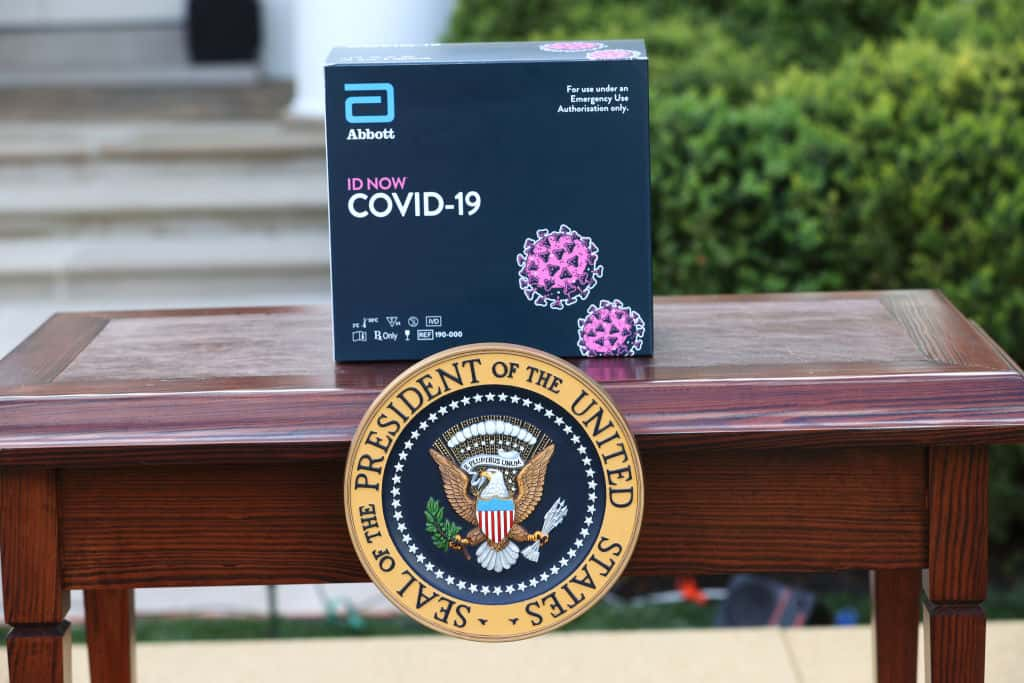Trump continues to endorse Abbott coronavirus test even after study shows it fails to detect 48% of cases

A coronavirus test used widely in the White House and across the country fails to detect as many as 48% cases of the infection, a new study suggests.
Developed by Abbott laboratories, Abbott ID Now generates results in under 15 minutes. The US Food and Drug Administration (FDA) approved it for emergency use in March. Hailing the test, US President Donald Trump called it a game-changer.
Following these reports, the FDA alerted Americans about the possibility of inaccurate results. In a press statement, the FDA said, "Any negative test results [with Abbott ID Now] that are not consistent with a patient's clinical signs and symptoms or necessary for patient management should be confirmed with another test."
Dr. Tim Stenzel, director of the FDA's Office of In Vitro Diagnostics and Radiological Health, said the federal agency is still evaluating the information about inaccurate results and are in touch with Abbott. " We will continue to study the data available and are working with the company to create additional mechanisms for studying the test," he added.
But none of that has not stopped Trump from endorsing it. "Abbott is a great test," Trump reportedly said at a Rose Garden event on his administration's efforts towards developing a vaccine.
“It’s a very quick test, and it can always be very rapidly double-checked if you’re testing positive or negative. It can always be double-checked, but it’s a very good test. Very portable. Very quick," he added.

What did the study find?
To meet the testing needs, the FDA had to speed up the approval of tests for emergency use without assessing them extensively. So the team from NYU Langone Health, Tisch Hospital Clinical Laboratories, evaluated the widely-used Abbott Now for its accuracy.
"This need to identify the Covid-19 positive cases quickly and accurately has propelled the release of a variety of assays intended to meet the urgent demand," the authors wrote in their study.
The team tested 102 emergency department patients who were suspected of having Covid-19. They tested patient samples using two machines: Abbott ID Now test and Cepheid GeneXpert. The NYU team has already evaluated the latter and found it to be acceptably accurate.
Of the 31 positive cases, the Abbott ID Now test missed 15 positive cases - accounting for 48% misses. It could misinform patients when they actually have the virus. Further analysis showed that the test accurately caught the virus when patients had large amounts of it in the body. "But, the fact that it misses positive samples on patients being admitted to the hospital with a clinical picture of Covid-19 makes this technology unacceptable in our clinical setting," they wrote.
In response to the study, Abbott technologies released a statement. It said: "The NYU study results are not consistent with other studies". They added that ID NOW is an important tool in that equation of helping reduce the risk people have every day of contracting the virus.
The NYU study has a few limitations, including the fact that they evaluated Abbott tests with only a few patient samples.